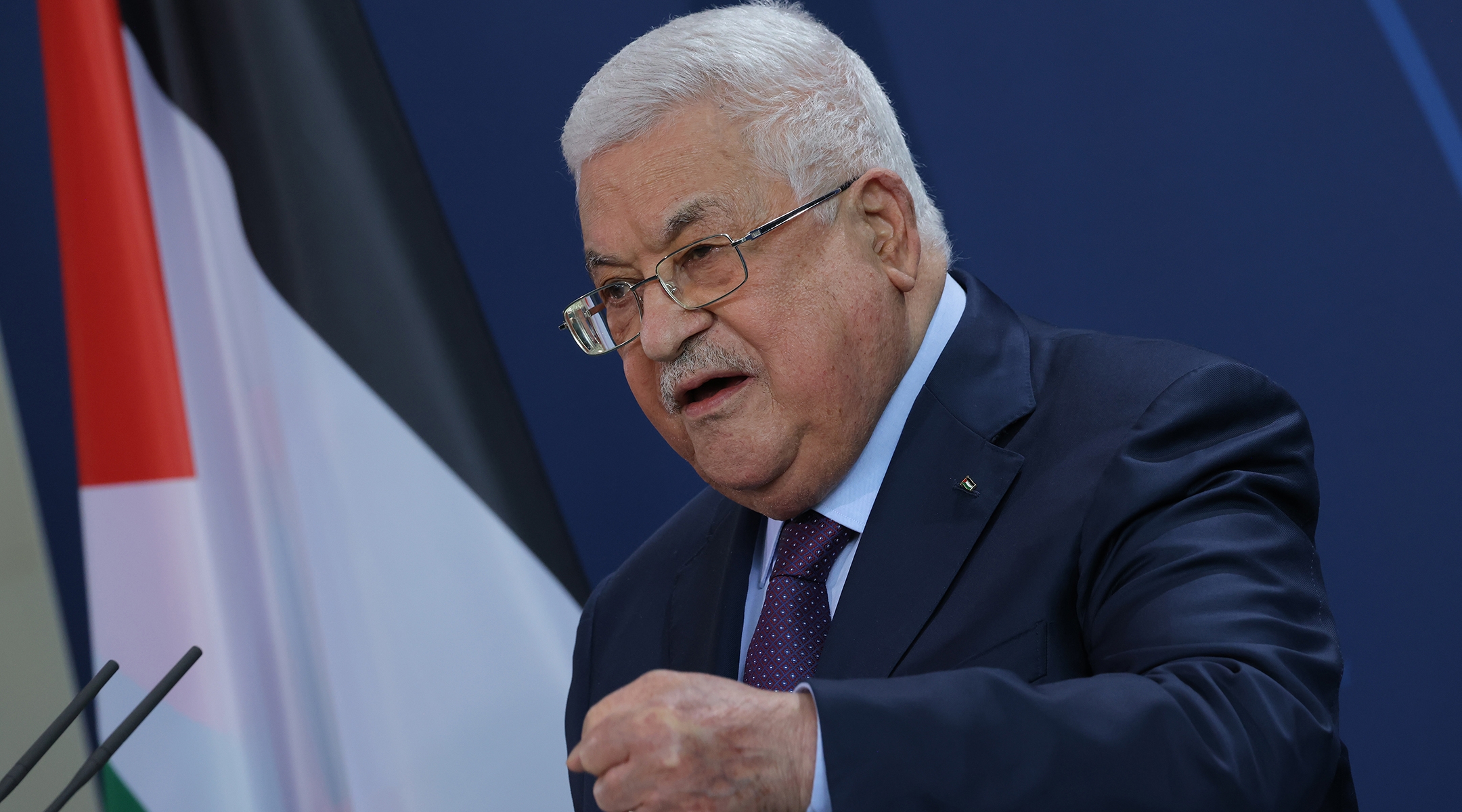Mahmoud Abbas ends Palestinian Authority payments to families of terrorists
The cancellation of the much-maligned program is reportedly a goodwill gesture to Trump

Palestinian Authority President Mahmoud Abbas speaks to the media in Berlin, Aug. 16, 2022. (Sean Gallup/Getty Images)
(JTA) — The Palestinian Authority will no longer pay stipends to the families of convicted terrorists and other prisoners, in a gesture to President Donald Trump.
The longstanding program determined the size of the stipend based on the length of a prisoner’s sentence, meaning that those who were convicted of the worst offenses often received the largest stipends. While Palestinians often view the thousands of prisoners with admiration as the front line of resistance against Israel, the payment program had been maligned for years by Israeli and American officials.
Pro-Israel advocates dubbed it “pay-for-slay,” and pointed to it as evidence that the Palestinian Authority, while itself disavowing armed conflict, incentivized terrorism. During Trump’s first term, Congress passed legislation cutting aid to the P.A., which governs Palestinian areas of the West Bank, based on the payment program.
Now, the program is ending. According to coverage in Maan, a Palestinian news agency, P.A. President Mahmoud Abbas ended the program on Monday while allowing for low-income families of prisoners to qualify for other forms of aid from the authority. The announcement comes as hundreds of Palestinian prisoners have gone free under Israel’s ceasefire deal with Hamas.
The cancellation of the program, according to the Times of Israel, had been formulated at the end of the Biden administration but wasn’t announced until after Trump took office last month in order to strengthen ties with him.
During Trump’s first term, the P.A. cut off relations with him in response to his move of the U.S. embassy to Jerusalem. Now, Abbas reportedly hopes to have better relations with the Trump White House. The move also comes as the P.A. faces the prospect of being sidelined from helping determine the future of Gaza. The Biden administration had hoped the P.A. would play a leading role in governing Gaza after the war there, but Israel rejected that idea, and now Trump is proposing a U.S. takeover of the territory.
A message from our Publisher & CEO Rachel Fishman Feddersen

I hope you appreciated this article. Before you go, I’d like to ask you to please support the Forward’s award-winning, nonprofit journalism so that we can be prepared for whatever news 2025 brings.
At a time when other newsrooms are closing or cutting back, the Forward has removed its paywall and invested additional resources to report on the ground from Israel and around the U.S. on the impact of the war, rising antisemitism and polarized discourse.
Readers like you make it all possible. Support our work by becoming a Forward Member and connect with our journalism and your community.
— Rachel Fishman Feddersen, Publisher and CEO


























